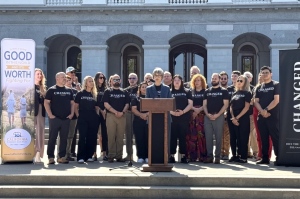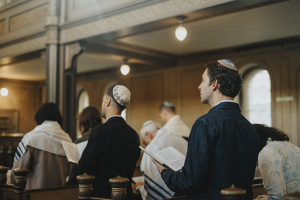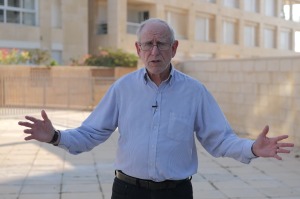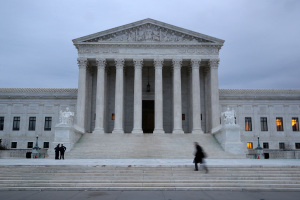India: 23 ‘forced’ conversion cases filed in 23 days of new anti-conversion law
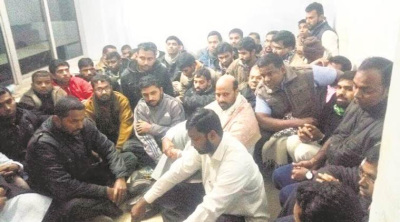
Police in India’s central state of Madhya Pradesh registered 23 cases of “forced” conversion in the first 23 days of the implementation of a new and strict “anti-conversion” law, according to media reports, indicating that the ongoing persecution of religious minorities is likely to further intensify.
“Twenty-three cases were registered under the newly passed Freedom of Religion Ordinance 2020 in January in Madhya Pradesh,” the state’s interior minister, Narottam Mishra, who is from the Hindu nationalist Bharatiya Janata Party, said, according to The Times of India.
The ordinance, which came into force on Jan. 9 and will affect mostly Muslim and Christian minorities, was passed under the pretext of “love jihad,” a term coined by Hindu nationalists to claim that Hindu women were being lured into marriage by Muslim men for conversion to Islam — a claim that has not been substantiated.
“We maintain that this is a serious issue and such forces are active across the country. An effort has been taken in Madhya Pradesh to stop them,” Mishra added.
An equal number of Muslims and Christians have been arrested under the ordinance, according to Matters India.
Among those arrested under the law is Chhatar Singh Katre, a teacher from a village in the Balaghat area, who had organized a prayer meeting on Jan. 27 to celebrate the admission of his daughter to college, the U.S.-based persecution watchdog International Christian Concern said.
Police arrived before the meeting began and arrested Katre and two other Christians, it said. All three were charged with violating the new anti-conversion law for luring and coercing people into changing their religion.
“My father organized the meeting for me and now he is in jail for no reason,” Kalyani Katre, Katre’s daughter, was quoted as saying. “The case was registered against him and two others on the complaint of a person who was booked 10 years ago for assaulting and harassing my father and others for participating in a religious program.”
The ordinance replaces the Madhya Pradesh Freedom of Religion Act of 1968, which presumes that Christian workers “force” or give financial benefits to Hindus to convert them to Christianity.
While these laws have been in place for decades in some states, no Christian has been convicted of “forcibly” converting anyone to Christianity. These laws, however, allow Hindu nationalist groups to make false charges against Christians and launch attacks on them under the pretext of the alleged forced conversion.
Similar anti-conversion laws have also been enacted in the states of Odisha, Arunachal Pradesh, Chhattisgarh, Gujarat, Jharkhand, Himachal Pradesh, and Uttarakhand.
Most recently, the northern state of Uttar Pradesh approved an anti-conversion law that experts warned would “incite more religiously motivated violence” as attacks on Christians and other religious minorities continue to escalate.
Some of these laws state that no one is allowed to use the “threat” of “divine displeasure,” meaning Christians cannot talk about Heaven or Hell, as that would be seen as “forcing” someone to convert. And if snacks or meals are served to Hindus after an evangelistic meeting, that could be seen as “inducement.”
The ICC previously noted that India’s own population data proves that the conspiracy of mass conversions to Christianity is a false claim. “In 1951, the first census after independence, Christians made up only 2.3% of India's overall population. According to the 2011 census, the most recent census data available, Christians still only make up 2.3% of the population.”
Attacks and curbs on Christians have been on the rise since the BJP won India’s 2014 general election.
“Since the current ruling party took power in 2014, incidents against Christians have increased, and Hindu radicals often attack Christians with little to no consequences,” noted Open Doors’ World Watch List last year, which ranked India as the 10th worst country for Christians.
“The view of the Hindu nationalists is that to be Indian is to be Hindu, so any other faith — including Christianity — is viewed as non-Indian. Also, converts to Christianity from Hindu backgrounds or tribal religions are often extremely persecuted by their family members and communities,” Open Doors said at the time.
Last year, India denied entry visas to representatives of the U.S. Commission on International Religious Freedom who had planned to investigate reports of persecution of Muslims and Christians following the release of its report that designates India as a “Country of Particular Concern.”
In a statement to The Christian Post, advocacy group The Federation of Indian American Christian Organizations of North America said at the time it was “deeply disappointed” India did not receive the CPC designation in 2020.
“The national government allowed violence against minorities and their houses of worship to continue with impunity and engaged in and tolerated hate speech and incitement to violence,” FIACONA said. “The Indian government headed by the Hindu nationalist BJP party continues to claim so conveniently that all such violence against Christians in India is isolated incidents and not the policy of the government.”
















